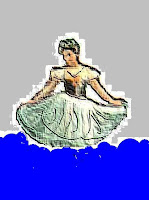"Had we but world enough and time,
This coyness, lady, were no crime."
Here, the speaker uses the rhetorical device of conditional statement to suggest that if they had endless time, there would be no reason for the mistress to be coy. However, the speaker quickly acknowledges the limitations of time and the brevity of human life.
“ Thou by the Indian Ganges' side
Shouldst rubies find; I by the tide
Of Humber would complain. I would
Love you ten years before the Flood;
And you should, if you please, refuse
Till the conversion of the Jews.”
This is a case of Hyperbole. The poet exaggerates the extant of physical distance between the two lovers .
He also exaggerates the length of time for which they would love each other .
This is also a case of Allusion since flood refers to here alludes to the Biblical flood in which none but No an and his family was left alone .
'My vegetable love should grow
Vaster than empires, and more slow.'
This is a case of Metaphor. The maturation of non-physical platonic love has been compared to the slow and insensible growth of vegetable love .
This is also a case of Irony. Although he seems, to praise vegetable love, -- the poet actually criticizer its lack of intelligence and vitality .
“ An hundred years should go to praise
Thine eyes, and on thy forehead gaze;
Two hundred to adore each breast,
But thirty thousand to the rest;
An age at least to every part,
And the last age should show your heart.”
This is a case of Hyperbole . The poet exaggerates the amount of time to be given to the adoration of each part .
This is also the case of Irony because the speaker is well aware that the human span of life is too small to permit such extensive praises. The statement is not sincere but mocking.
"My vegetable love should grow / Vaster than empires, and more slow," employs metaphor and paradox. The speaker compares his love to a vegetable, symbolizing its slow and gradual growth. The paradox lies in the simultaneous reference to it growing vaster than empires, suggesting that although the love may be slow, it will eventually surpass the grandeur of worldly empires.
This is a case of Irony. Although the poet wants to pose as an ideal lover who holds the beloved in the highest esteem , the speech reveals the fact that he is not sincere and there he wants to mock such an abstract notion of ceremonial love .
'But at my back I always hear
Time’s winged chariot hurrying near'
This is a case of personification .Time is spoken of as the rider of a chariot.
This is also a case of Metaphor. The swift flight of time has been compared to swift flight of a chariot of wings .The comparison is not made explicit.
'And yonder all before us life
Deserts of vast eternity'
This is a case of Metaphor. ‘Death’ has been compared to a desert. . It is after Death no life is possible just in a desert little life can be seen.
'The beauty shall no more be found
Nor in the marble vault, shall sound
My echoing song;'
This is a case of metonymy in which the symbol stands for the theme symbolized Marble vault stands for a mausoleum.
‘The grave's a fine and private place,
But none I think do there embrace.’
This is case of Irony.
Although the speaker apparently praises the privacy of the grave, it is obvious that He wants to satirise such lifeless privacy.
“ And now, like am'rous birds of prey,
Rather at once our time devour,
Than languish in his slow-chapp'd power.
Let us roll all our strength, and all
Our sweetness, up into one ball;”
This is case of simile.
The lovers are compared to predatory birds. The lovers should enjoy their [physical] freshly love with the passion and keenness with which such birds hunt flesh. The similarity is explicitly expressed by the word, ‘like’
This is also a case of personification. Time is here spoken of as a person who gradually shows up the mortals.
‘And tear our pleasure with rough strife-gates’
This is a vase of metonymy in which the symbol stands for the theme symbolized. The iron gates stands for the inescapable process of birth and death.
‘Thus though we can not make our sun stand still,
yet we will make him run’
This is a case of Epigram. Although the thought of making ‘the sun run’ may seen absurd, there lies a deeper truth beneath the absurdity. They will utilize time such feverish haste that even the sun will have to be more swift in order to keep up with them.


Comments
Post a Comment
Drop any query, suggestion or comment here.